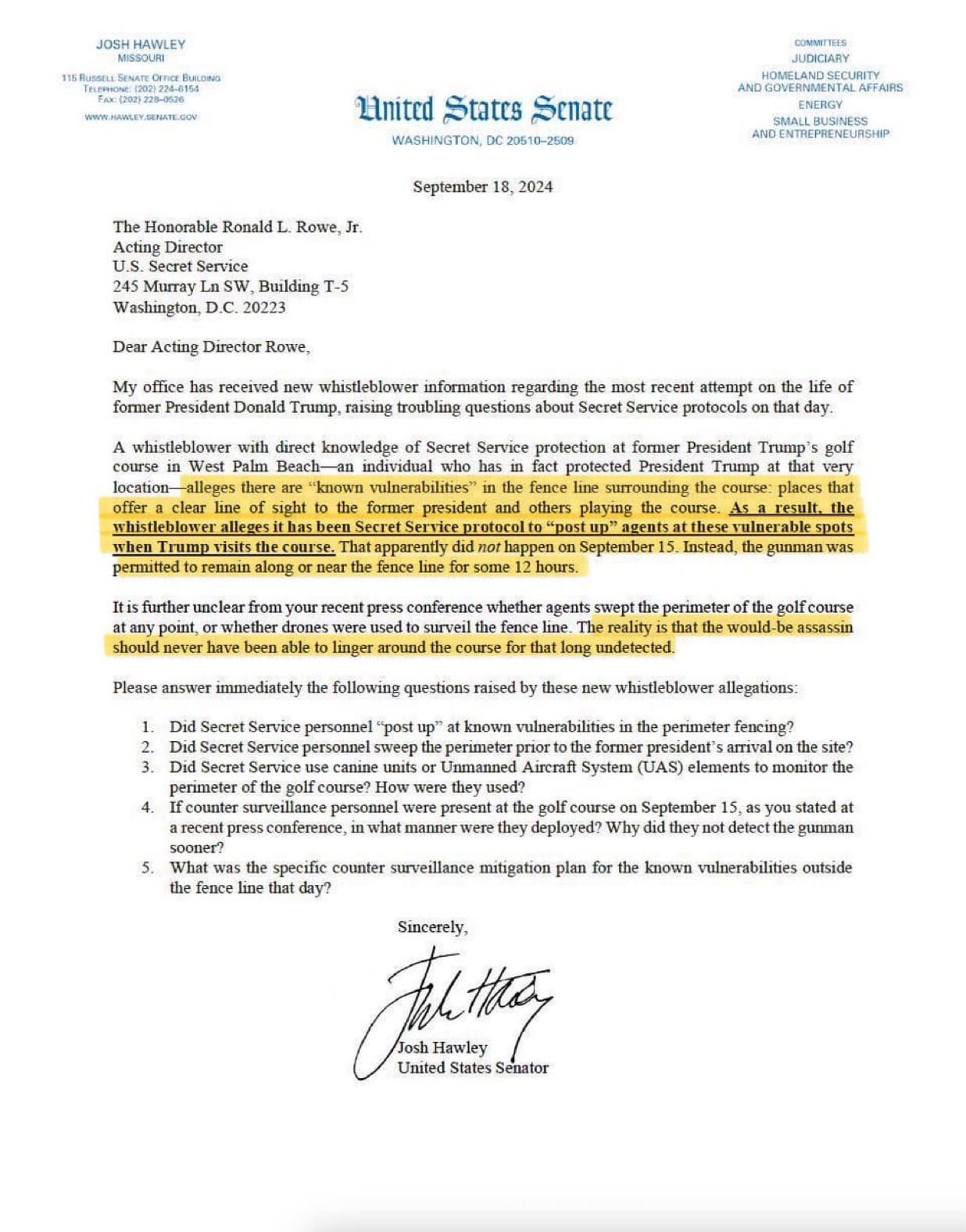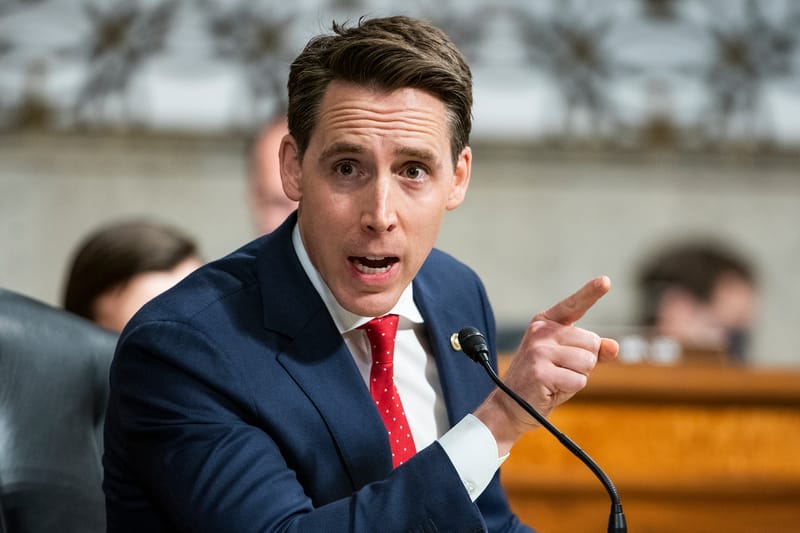Whistleblower Alleges Internal Secret Service Involvement in Second Trump Assassination Attempt
In a startling development that has sent shockwaves through the political and security communities, a whistleblower has come forward with allegations that the recent second assassination attempt on former President Donald Trump might have been orchestrated from within the United States Secret Service. This claim, if true, could signify one
In a startling development that has sent shockwaves through the political and security communities, a whistleblower has come forward with allegations that the recent second assassination attempt on former President Donald Trump might have been orchestrated from within the United States Secret Service. This claim, if true, could signify one of the most significant breaches of trust in the agency's history.
The whistleblower, whose identity has been kept confidential for safety and security reasons, detailed in a report released by Senator Josh Hawley (R., Mo.) that there were "known vulnerabilities" at Trump's golf course in West Palm Beach, Florida, where the attempt took place. According to the whistleblower, these vulnerabilities, including strategic vantage points offering clear lines of sight to Trump, were not addressed despite protocol suggesting they should have been.
This revelation follows closely on the heels of another assassination attempt on Trump during a rally in Butler, Pennsylvania, where security failures were also highlighted. The Secret Service's response to these incidents has come under intense scrutiny, particularly after reports of understaffing key security positions and denying resources like drones for perimeter surveillance.

Senator Hawley, known for his critical stance on the Secret Service's handling of Trump's security, has demanded a thorough investigation into these allegations. He pointed out during a Senate hearing that the Secret Service had previously refused additional security measures, a decision that now raises questions about the agency's commitment to protecting former President Trump.
The Secret Service, for its part, has maintained a stance of cooperation with ongoing investigations but has not publicly addressed the whistleblower's specific allegations. However, their recent social media activity reflects a focus on other aspects of their mission, such as combating financial crimes and commemorating historical events, which some interpret as an attempt to divert public attention from the current crisis.
Political analysts and former Secret Service members have expressed disbelief and concern over the allegations. "If true, this would not only be a betrayal of the agency's core mission but also a profound failure of national security," commented a retired agent, speaking on condition of anonymity.
The implications of these allegations reach beyond the immediate security of former President Trump, touching on broader issues of trust in government institutions and the politicization of security agencies. While no direct evidence linking Secret Service personnel to the orchestration of the assassination attempt has been made public, the very accusation has ignited a firestorm of speculation and calls for accountability.
This story develops against a backdrop of heightened political tension and security concerns, with many questioning how such a breach could occur under the watch of those tasked with the highest levels of protective detail in the country. The full scope of these events and their impact on national security protocols remains to be seen, but for now, the focus remains on uncovering the truth behind these grave allegations.

